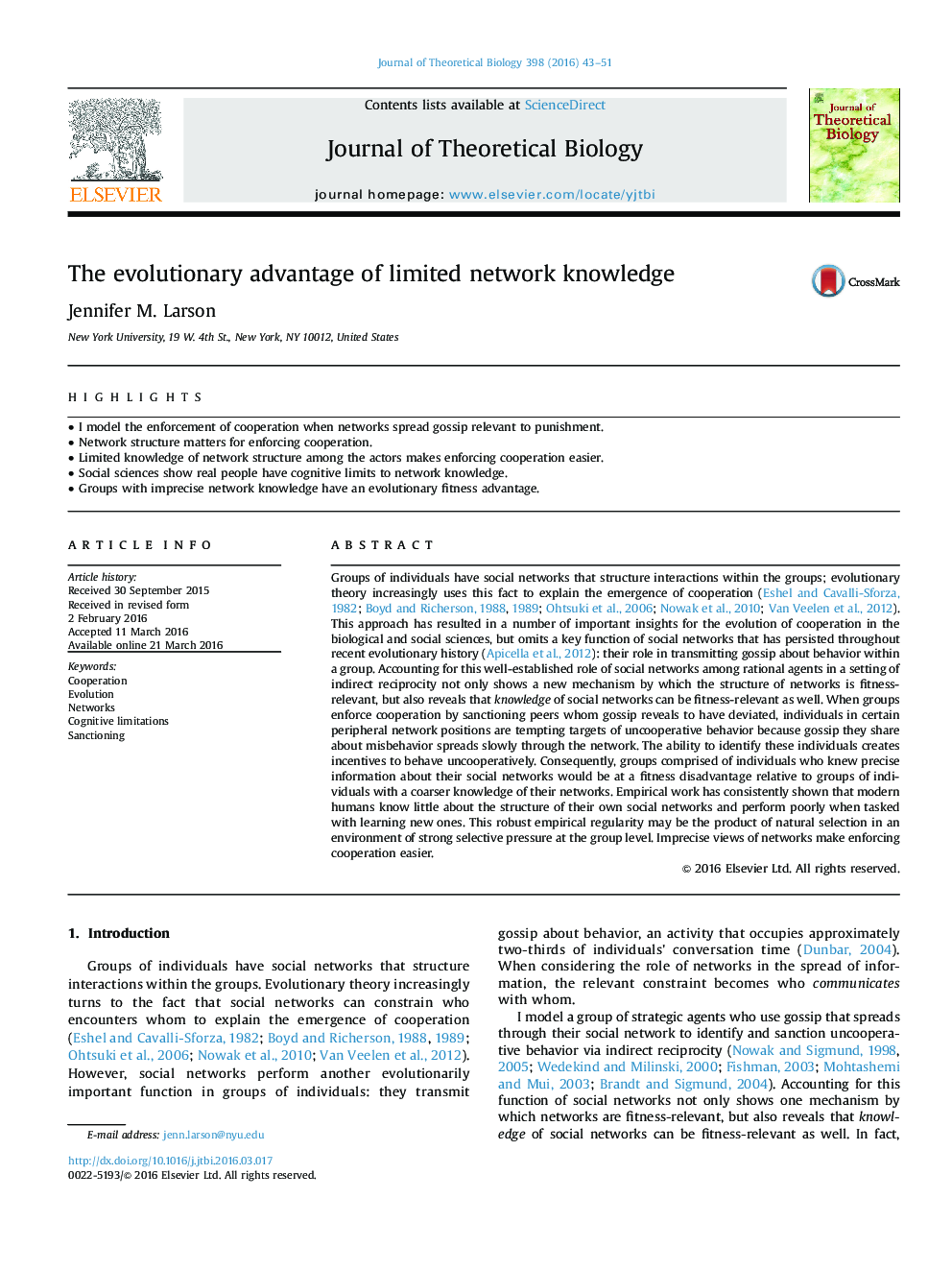| کد مقاله | کد نشریه | سال انتشار | مقاله انگلیسی | نسخه تمام متن |
|---|---|---|---|---|
| 4495815 | 1623812 | 2016 | 9 صفحه PDF | دانلود رایگان |
• I model the enforcement of cooperation when networks spread gossip relevant to punishment.
• Network structure matters for enforcing cooperation.
• Limited knowledge of network structure among the actors makes enforcing cooperation easier.
• Social sciences show real people have cognitive limits to network knowledge.
• Groups with imprecise network knowledge have an evolutionary fitness advantage.
Groups of individuals have social networks that structure interactions within the groups; evolutionary theory increasingly uses this fact to explain the emergence of cooperation (Eshel and Cavalli-Sforza, 1982, Boyd and Richerson, 1988, Boyd and Richerson, 1989, Ohtsuki et al., 2006, Nowak et al., 2010 and Van Veelen et al., 2012). This approach has resulted in a number of important insights for the evolution of cooperation in the biological and social sciences, but omits a key function of social networks that has persisted throughout recent evolutionary history (Apicella et al., 2012): their role in transmitting gossip about behavior within a group. Accounting for this well-established role of social networks among rational agents in a setting of indirect reciprocity not only shows a new mechanism by which the structure of networks is fitness-relevant, but also reveals that knowledge of social networks can be fitness-relevant as well. When groups enforce cooperation by sanctioning peers whom gossip reveals to have deviated, individuals in certain peripheral network positions are tempting targets of uncooperative behavior because gossip they share about misbehavior spreads slowly through the network. The ability to identify these individuals creates incentives to behave uncooperatively. Consequently, groups comprised of individuals who knew precise information about their social networks would be at a fitness disadvantage relative to groups of individuals with a coarser knowledge of their networks. Empirical work has consistently shown that modern humans know little about the structure of their own social networks and perform poorly when tasked with learning new ones. This robust empirical regularity may be the product of natural selection in an environment of strong selective pressure at the group level. Imprecise views of networks make enforcing cooperation easier.
Journal: Journal of Theoretical Biology - Volume 398, 7 June 2016, Pages 43–51
